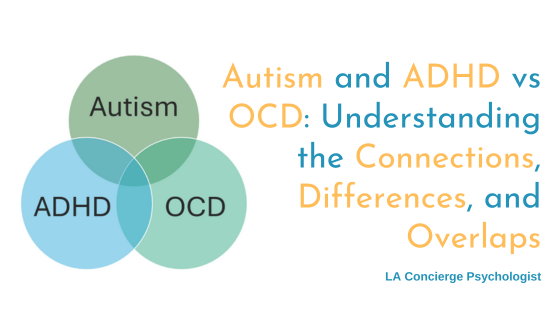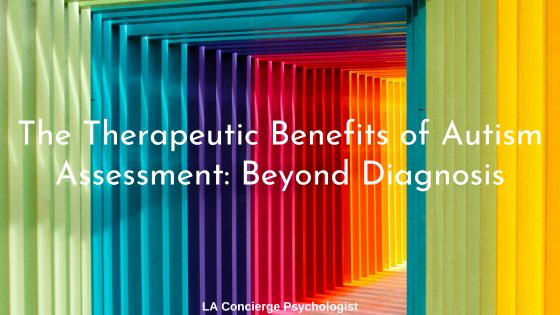‘Why Am I So Awkward?’ Is It Social Anxiety, Or Could It Be Autism?
Have you been experiencing social difficulties? Perhaps you struggle to make friends, feel like you don’t fit it, or get anxious during social gatherings. If social interaction is often problematic or painful for you, you may have asked yourself, “Why am I so awkward?” Everyone struggles socially from time to time, but you may wonder whether your brain may be wired differently than your peers.
Many biological conditions can lead to social difficulties, including autism. However, not all autistic individuals will display social awkwardness (though they may struggle inwardly). Moreover, not everyone who is socially awkward is autistic. And, in fact, they don’t necessarily have a diagnosable condition.
Commonalities between social anxiety and autism
When it comes to social behavior, there are many characteristics that autistic people share with those who have social anxiety disorder. Both groups tend to feel uneasy and unsure of themselves in social situations. They often second-guess themselves after-the-fact. Autistic people and socially anxious individuals also typically need time to recover after social engagements (especially those with people they don’t know very well).
If you have been experiencing social difficulties for as long as you can remember, you may be asking yourself, “Am I autistic, or do I have social anxiety?” There is no denying that many similarities exist between the two conditions. Fortunately, there are also many differences between autism vs social anxiety disorder, which I have outlined below.
If you’re looking for a formal diagnosis, you’ll need to speak with a psychologist who can explore your symptoms in detail. As an autism specialist and licensed psychologist, I can offer insights into how you are wired and help you cope with any conditions that may be holding you back. In the meantime, you may find it helpful to familiarize yourself with some common signs of autism.
Suppose you have social difficulties, but you don’t see yourself in the descriptions below. In that case, you may have social anxiety disorder or another condition. Quite possibly, you may just be experiencing normal, temporary growing pains as you encounter new social situations. Alternately, if you identify with one or more of the following traits, autism may be the root cause of your social problems:
You are easily over- or under-stimulated
If you are autistic, you may struggle with hyper or hyposensitivity. In other words, you become uncomfortable if there is too much or too little stimulation. Everyone has a comfort zone in terms of the amount of sensory input they can tolerate. Autistic people tend to have a narrow tolerance zone. They experience an urgent need to stay within it. If you’re in an environment that is outside of that tolerance zone, you can feel yourself overwhelmed by the discomfort. Sometimes to the point that it’s almost impossible to focus on anything else.
If you are autistic, you may need to stand up, pace, or fidget during conversations. Conversely, it may calm you down to wear headphones, dim the lights, or bounce on an exercise ball when you are anxious. When feeling dysregulated, firm hugs or weighted blankets might help you feel regulated again. Behaviors like these are known as stimming; they help you stay regulated. All people stim to some degree. For example, nail-biting and hair twirling are common stims. However, stimming is more pronounced in autistic people, who may feel unable to prevent stimming, even when there are negative social consequences.
You are exceptionally passionate about your hobbies
Your passion has depths that most of your friends or colleagues do not possess. When you find something that makes you happy, the level of enthusiasm and persistence you devote to it over the years baffles others. For example, your friends may enjoy fashion, but you research deeply for hours on end. You possess a voracious, boundless curiosity about the topic and can share obscure details about pattern making or designers’ lives. Similarly, most people likely get bored watching a movie for the second or third time, but not you. You can put on the same film—or perhaps it’s a TV show, video game, or song—again and again without growing tired of it. In fact, when you watch that movie on loop, you feel a sense of calmness and contentment.
A heightened need for routine/control/sameness
If you are autistic, you may insist on a certain level of predictability in your everyday life. Once you find a routine that works, you see no reason to change it. You feel a sense of calm and safety when your life is structured in a predictable way, . In fact, the idea of mixing things up feels incredibly dysregulating and overwhelming. Your colleagues might get energized by the thought of an out-of-town work trip. For you, though, things will be too new, unpredictable, and out of your control.
You believe that when someone agrees to a plan, they should stick with it (unless they have a very compelling reason). If the plan changes, you may start to feel like you have no control, which makes you uncomfortable. For example, your friends might not mind that you were all supposed to leave for dinner an hour ago. While they sit there and chitchat unconcernedly, you grow increasingly frustrated that no one seems to care about your growing hunger or the discomfort they are creating for you internally.
You find social occasions mentally exhausting
Lots of people need recovery time after social situations, particularly highly sensitive people, socially anxious people, or introverts. However, autistic people find them especially draining. It isn’t quite so bad when you spend time with people you know well and with whom you feel comfortable. Nevertheless, you still need a significant amount of time afterward to decompress. For someone non-autistic, this may look like a few hours of being alone and engaging in self-care. For autistic people, though, the need for recovery is more heightened. You may find yourself locked in a dark room, trying to block out any sensory input, for an entire day. Doing any type of work and being “productive” is out of the question.
Other times, social situations may seem to go well thanks to your dedication to “acting normal.” Other people may not even notice you’re having difficulties because you put so much effort into blending in. You think about every word, inflection, and gesture, trying to mimic those you’re around.
People with social anxiety are also proficient in social camouflaging. If you have autism, though, you may have become exceptionally adept at masking your social eccentricities (this is often true of autistic women). It comes at a cost, however. You may feel much more drained afterward (a condition known as “autistic burnout”) than people who are neurotypical.
Get to the bottom of your social difficulties
We hope this article has helped you recognize autistic traits in yourself or tentatively rule out autism as a root cause of your social difficulties. Social anxiety disorder and autism may look the same on the outside, but they are very different biologically. By working with an experienced therapist, you can determine whether your social woes are rooted in structural brain differences (as with autism), chemical imbalances, or cognitive factors.
If you’re ready to get to the bottom of your social difficulties, we can help. We have supported many people through interpersonal challenges—all without asking them to change who they are. Learn more about our neurodiversity-affirmative approach to supporting autistic adults. Or book a free 20 minute consultation call with Dr. Barajas or Dr. Goldman.



